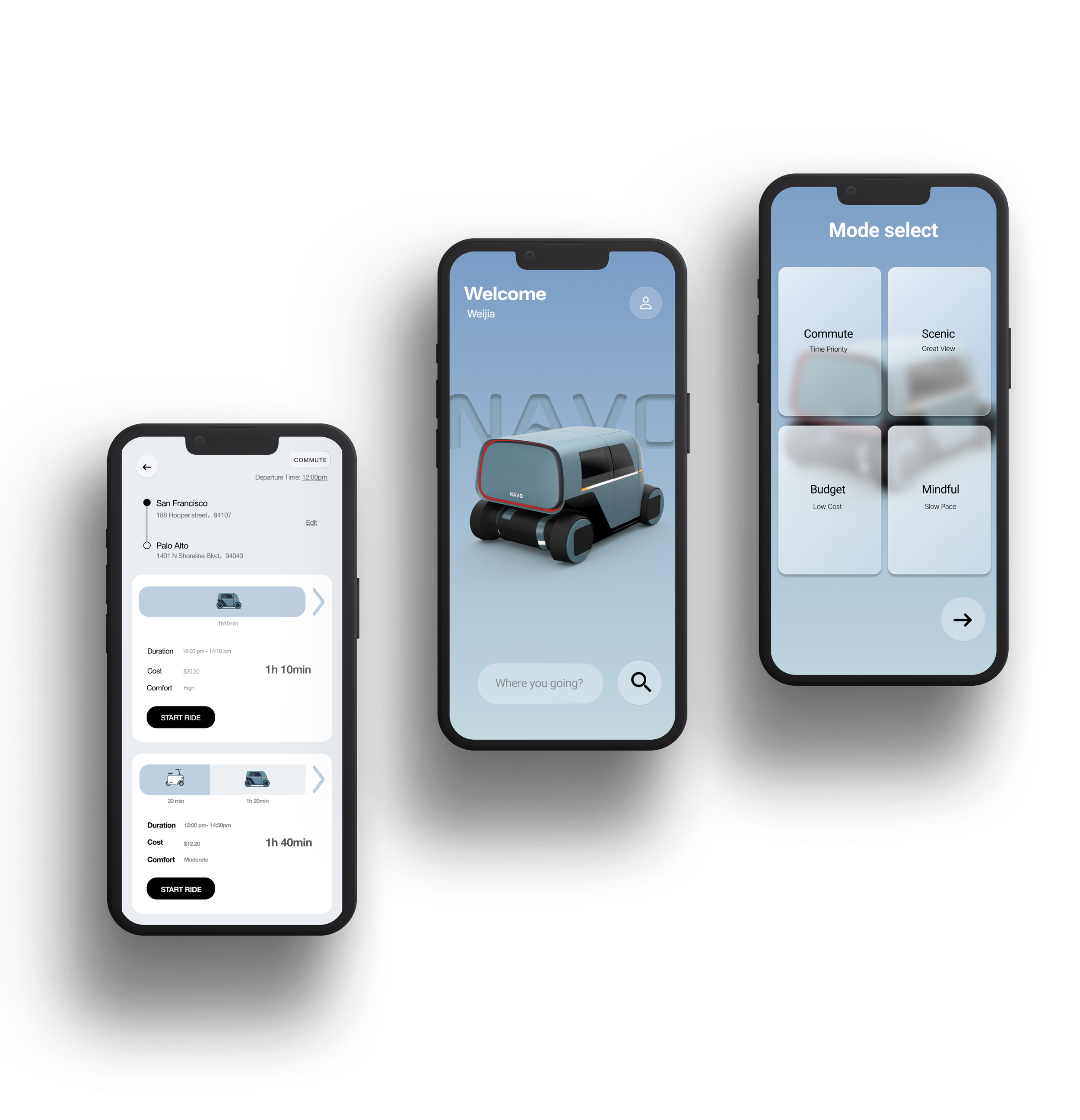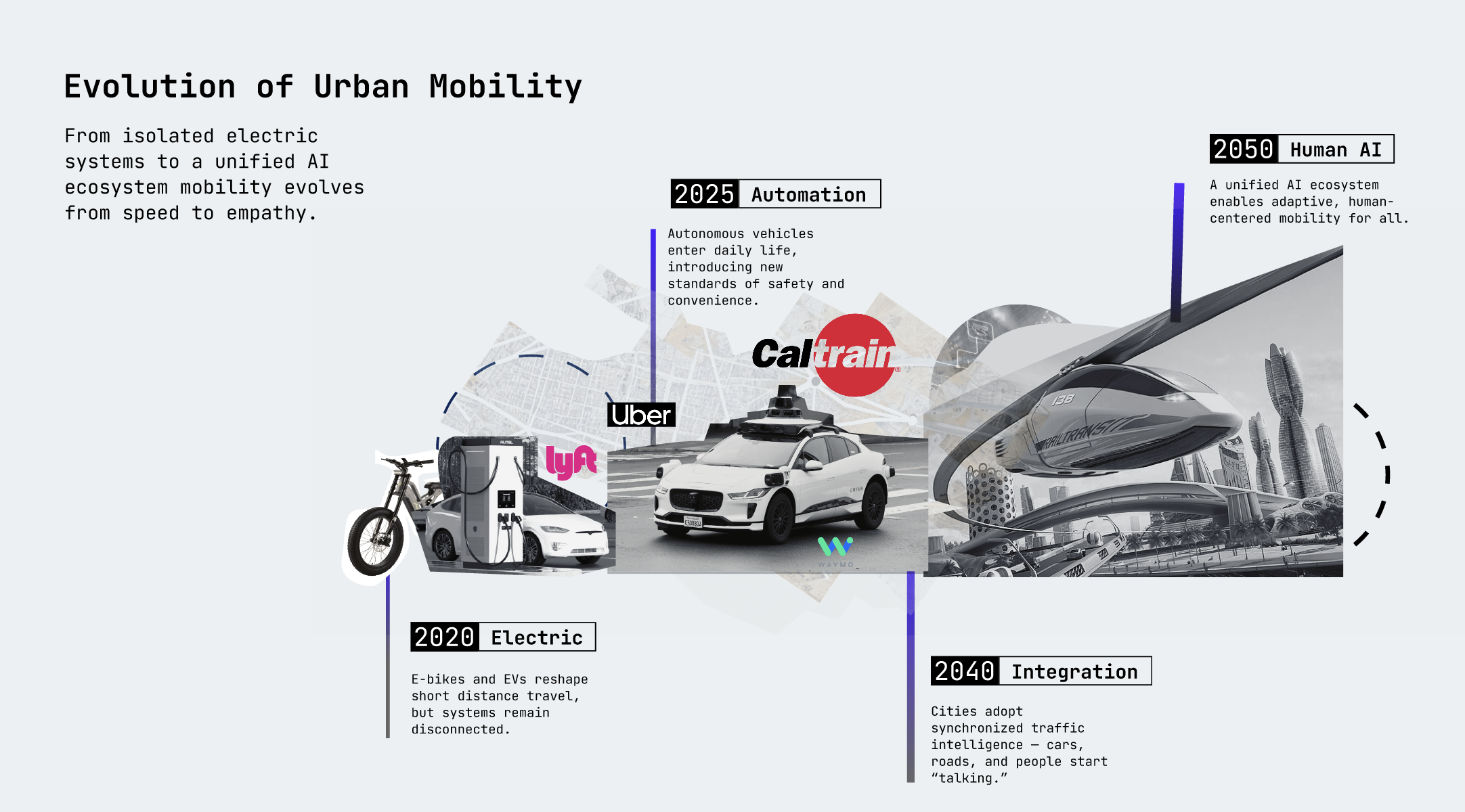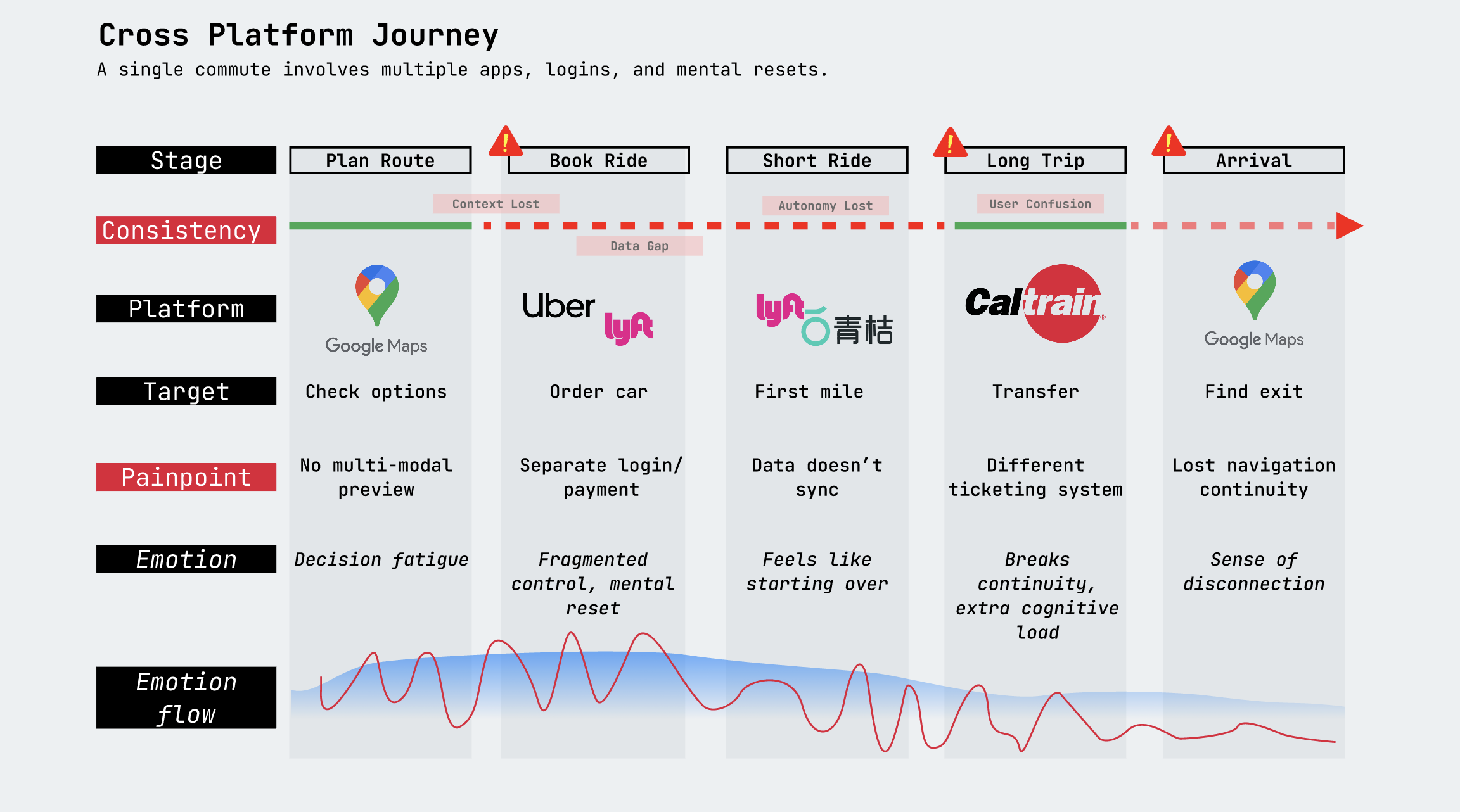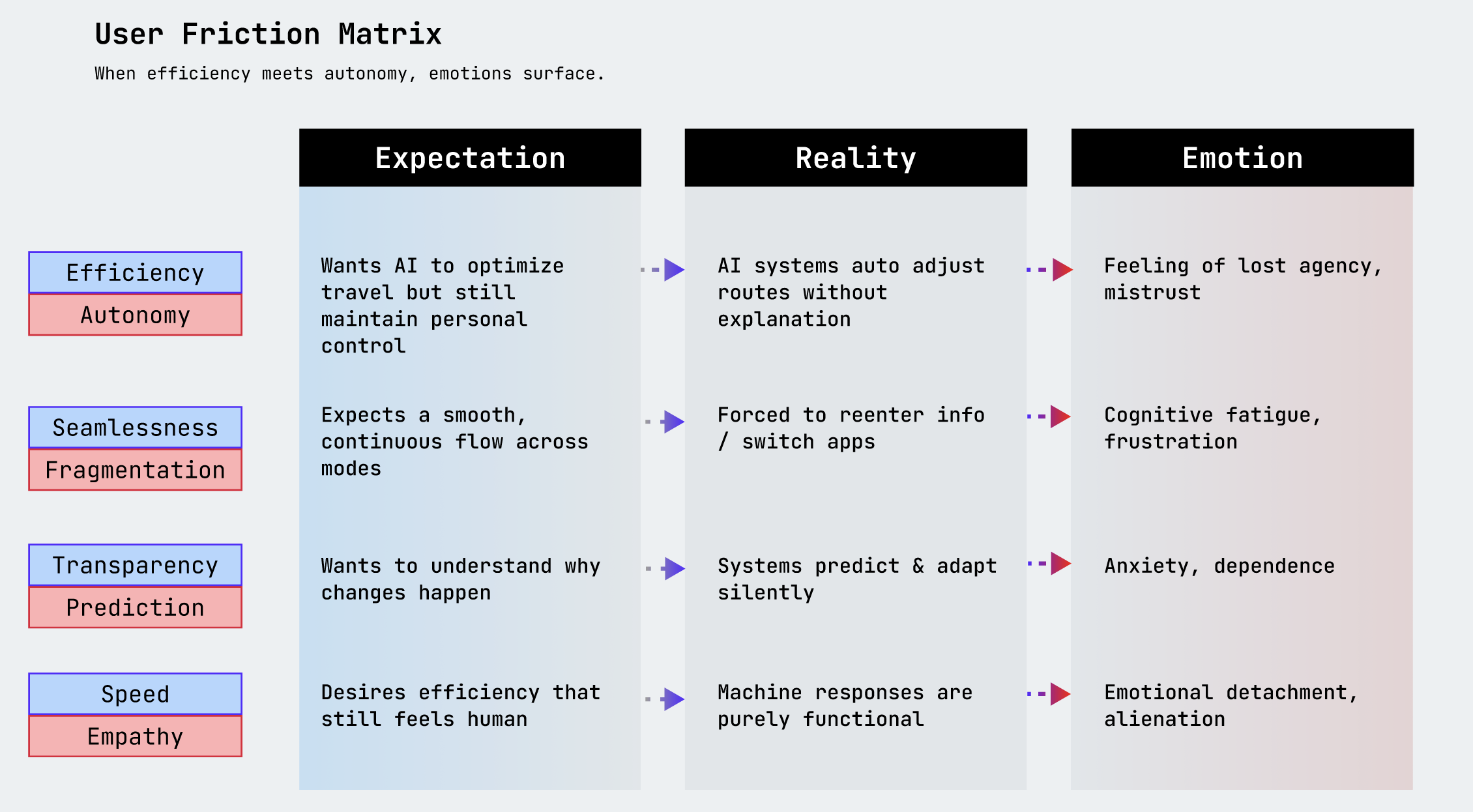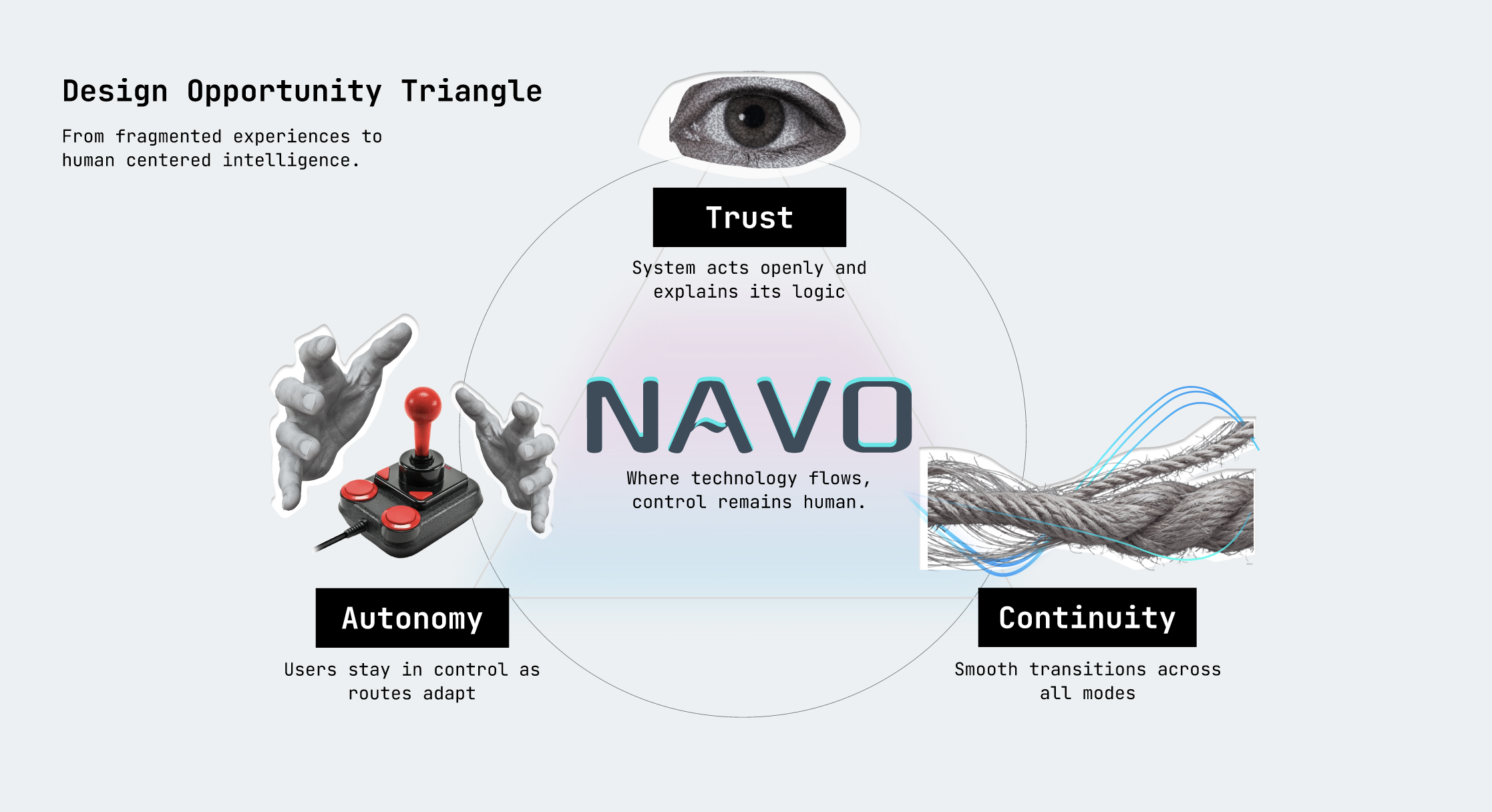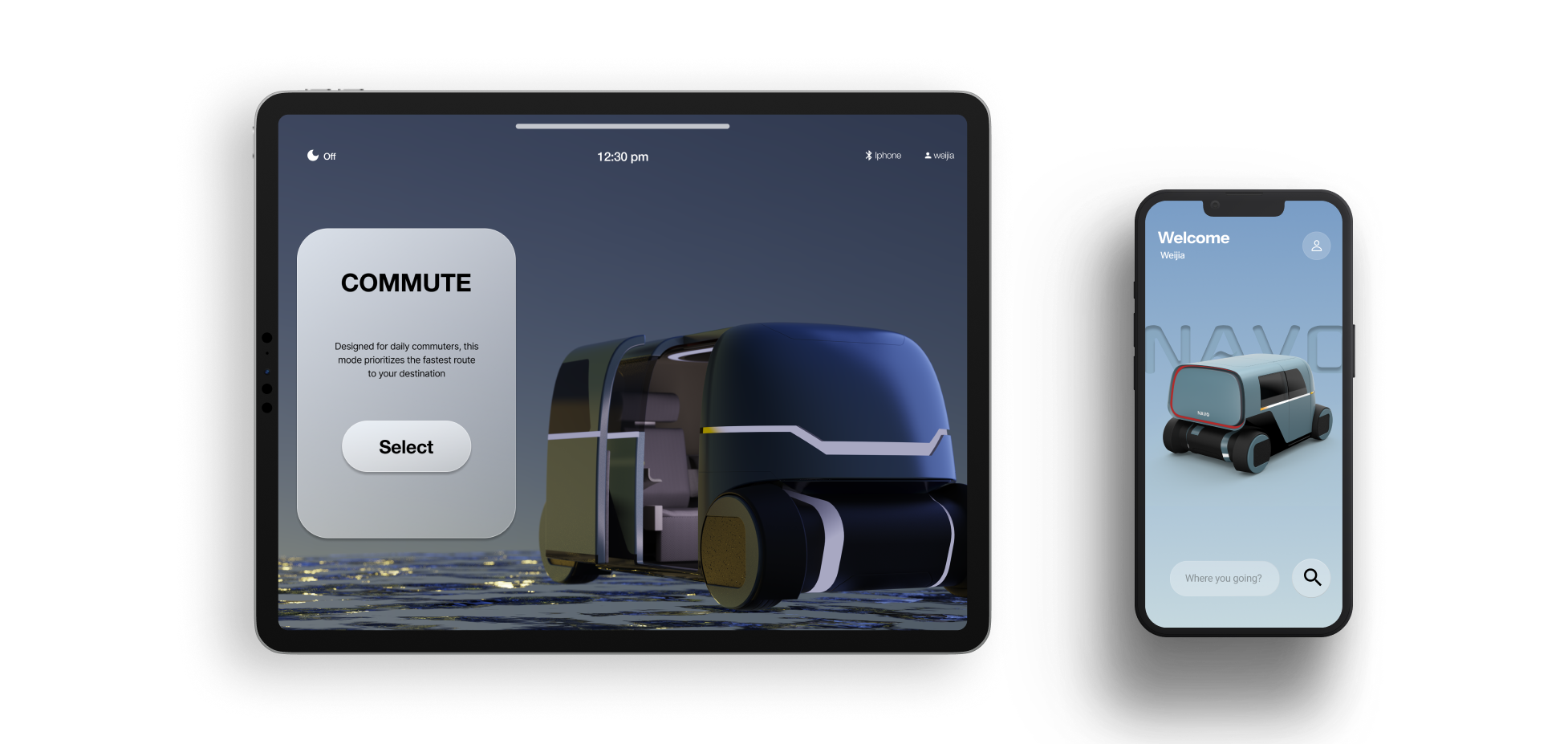AI-enhanced urban mobility for flexible planning, meaningful choice, and a future ready experience.
NAVO reimagines how people move through tomorrow’s cities.
Blending artificial intelligence with inclusive design, the system empowers commuters to navigate traffic with ease, adapt to changes instantly, and discover routes that reflect their personal priorities. More than just a tool, NAVO is a companion for smart, sustainable, and connected urban living.
ROLE
UI/UX Designer
SKILL
Figma
When Efficient Meets Chaos
Rethinking Urban Mobility in 2050
Beneath the promise of automation and speed, commuters still face fractured experiences with switching between platforms, systems, and modes of travel that don’t speak the same language.
Making Sense Of Complexity
To understand how current systems shape user experiences, I analyzed major mobility platforms and interviewed daily commuters, e-bike users, and autonomous car passengers.
These studies revealed patterns of efficiency, control, and emotional friction, which is the foundation of NAVO’s design direction.
Each of these breaks represents a failure in systemic communication that not between users and apps, but between the platforms themselves.
System Fragmentation Map
When platforms optimize individually, the system fails collectively.
Frictions Beneath Efficiency
Users are caught between the promise of automation and the need for agency.
The smoother the system becomes, the less visible and more alienating.
What We Learned
1. Fragmentation is not technical, but human.
The true barrier isn’t missing APIs, but the cognitive cost of switching contexts.
2. Users want efficiency and autonomy.
They seek systems that adapt, but still let them make meaningful choices.
3. Continuity builds trust.
Emotional comfort comes from predictability and visibility rather than automation alone.
These insights define Navo’s design direction: to create a fluid, human-centered mobility ecosystem that restores both control and confidence.
Related Research
Design Opportunity
Research revealed that users experience not only fragmented journeys, but also fragmented emotions.
Therefore, the design opportunity lies in building a system that restores continuity, autonomy, and trust.
Navo redefines smart mobility as a companion that adapts to humans, not the other way around.
Core Experience Flow
From Reactive Navigation to Adaptive Collaboration.
Key Scenarios
Giving AI a Human Tone
Before building screens, I defined how NAVO should feel.
A Dialogue Between System and Traveler
NAVO turns fragmented moments of travel into a continuous loop of awareness and adaptation.
Every stage reflects how technology listens, learns, and responds.
Reflection
NAVO challenged me to rethink what “smart mobility” really means.
Beyond efficiency and prediction, I realized that the true value lies in how systems communicate is how they explain, adapt, and earn trust through subtle feedback.
Throughout the process, I learned that designing AI isn’t about control or automation, but about partnership: giving technology a human rhythm.
If I were to continue, I’d explore how emotion-aware interactions could deepen this relationship, turning mobility systems into companions that understand both where we go and how we feel on the way.



